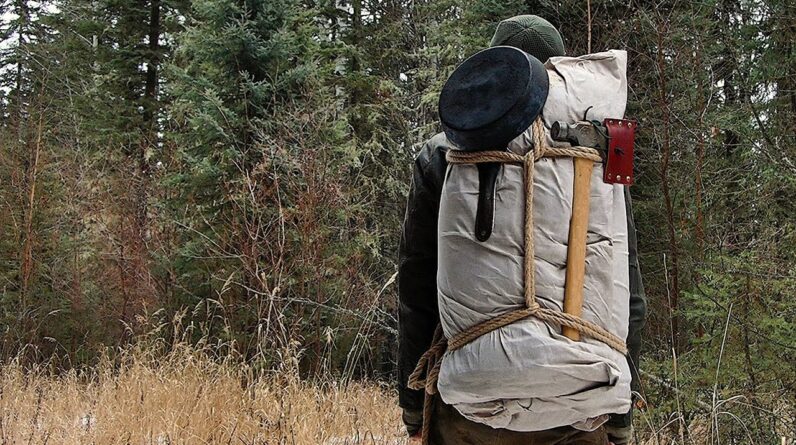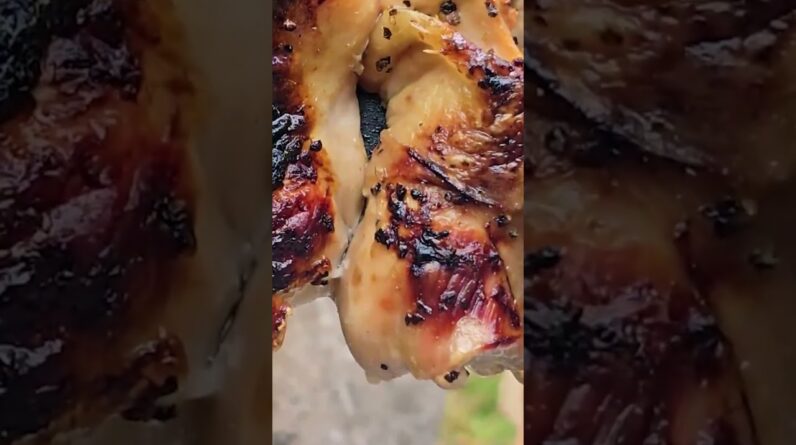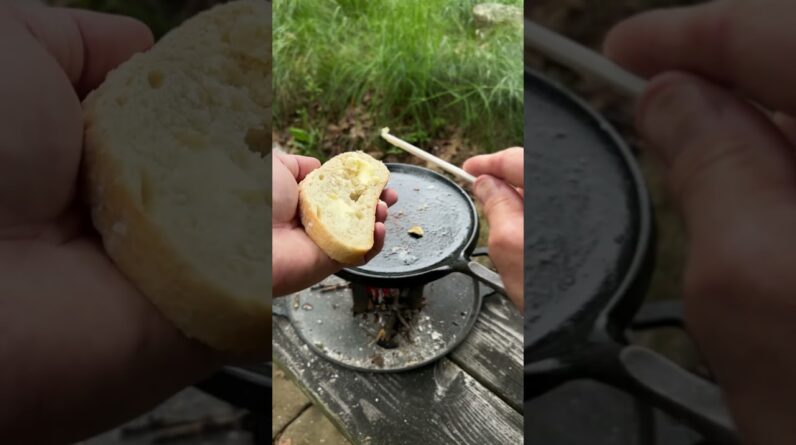
While I do wish that there was more snow and colder temperatures, I certainly can’t complain about the weather during this trip. Some very mild winter conditions allowed me to be extremely comfortable on an overnight campout with a minimal bedroll kit. I’m beginning to explore areas for a future project I hope to begin this summer. The resources in this area looked quite promising for my needs.
Let me know if you have any questions! Thank you to everyone who watches. All glory to God!
Extra Info:
This was filmed in Alberta, Canada.
My kit weighed 21 lbs on the hike to my campsite. That includes all my bedding, tools, water, and food. Carrying it with the thin rope straps was not an issue for me. On the hike out my pack was slightly lighter due to less food and an empty water bottle. The lighter weight was even more enjoyable to carry. I think keeping a bedroll pack around 15-17 lbs would be very comfortable to carry.
My tarp is an 8’x8′ waxed cloth tarp that is homemade. I made it from a 600 thread count cotton bed sheet. I hand-sewed tie out loops cut from lamp wick material. I waxed it with a 7:1 paraffin to beeswax mixture (measured by weight).
My hatchet weighs 1 3/4 lbs. It has no branding marks on it. It was heavily rusted and without a handle when I got it. I restored it, reprofiled the cutting edge, hafted a handle, and made the leather sheath. So far it has been a pleasure to use.
My kettle/cooking pot is a Stainless Steel Uberleben Kessel. It suites my needs quite well and is far easier to clean that a standard kettle. The removeable/reversable handle offers a lot of versatility that makes it a perfect addition to my kit.
My frying pan is branded ‘Quick Meal’. It measures 8″ in diameter at the base of the pan. An 8″ frying pan is excellent to have compared to a smaller 5″ or 6″ pan. The larger size allows you to easily cook whole meals inside of the pan without struggling to evenly cook the food or having food spill out over the edges.
To do my dishes I wipe them out with a natural material (grass, moss, spruce boughs) then heat them over the fire with some water or snow in them. Once the water is hot I use my spatula (or a stick) to scrape away any remaining food. I dump the water into the side of my fire pit then once again use a natural material to wipe away anything remaining in the dish. At this point the dish is clean from food and I use a small rag carried in my kit to wipe them down. Following this process leaves me with clean non-greasy dishes without having to use any soaps or disposable towels. All of the natural materials I use to clean my dishes I discard into my fire so as to not leave any traces of food around my camp. I have to be conscientious about leaving food around my camps since there are large predators/animals in the area.
The sounds at night were Owls calling back and forth. The were also coyotes howling but I was unable to get a good recording of them.







